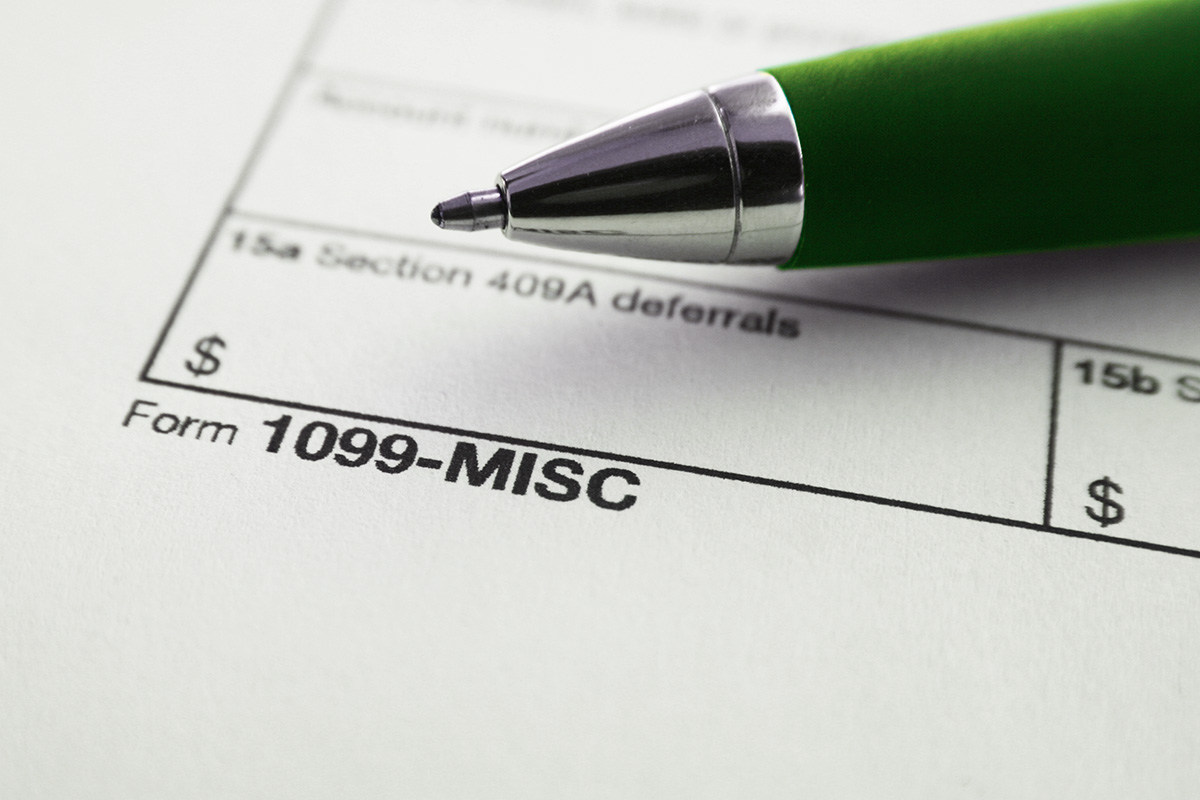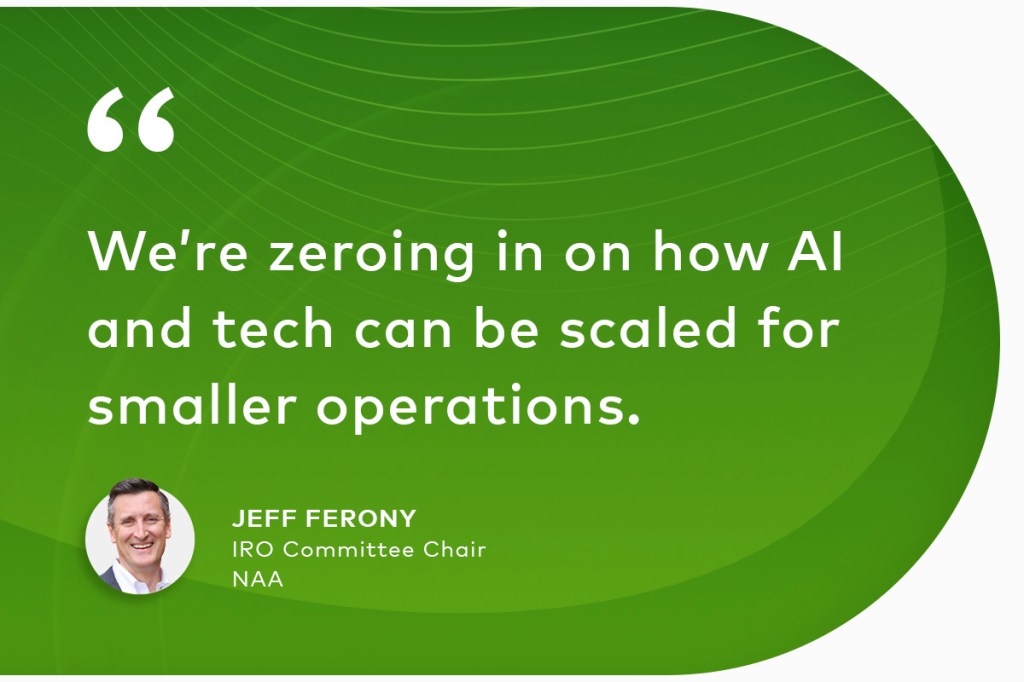
For property owners and property managers, tax time can mean a lot of paperwork. Filing 1099s is one of the things that can creep up on you if you’re not careful. Keep reading to learn more about IRS Form 1099-MISC and the newer IRS Form 1099-NEC. We’ll tell you what they are, who they’re for and when they’re due.
What are 1099s?
1099s are forms used to report miscellaneous income such as rent collected or payment for contract work. They can also be used to report royalties, prizes and awards.
According to the IRS, you need to file a Form 1099-MISC for employees you paid at least $600 over the course of the previous year for:
- Rent
- Prizes or awards
- Income payments
- Other fees
Starting in 2020, the IRS requires Form 1099-NEC for each non-employee to whom your business paid at least $600 during the year. Previously, these expenses were included in the 1099-MISC. A tax professional can help you if you’re uncertain about which forms you need.
Breeze Premier enables us to easily track who entered or edited any information, making auditing less challenging. In an industry where audits are standard, having detailed records of every transaction is a major advantage.
Patty Morelos, president of CORE Property Management
How do 1099 forms affect property managers?
Property managers commonly use 1099 forms for vendors and property owners. Vendors include people working as maintenance workers, landscapers, bookkeepers, attorneys and other professions. Did you pay a graphic designer more than $600 to work on graphics for your website or marketing materials? If the answer is yes, you would prepare a 1099 for them.
There are also other reasons you would file a 1099, but many of them are less likely to apply to property managers. See the full list of filing requirements.
What needs to be documented?
Document everything. Start with the low-hanging fruit and document all vendor payments. Even if it was a small amount and doesn’t require a Form 1099-MISC, it was still a business expense. If this sounds like a tedious, time-consuming task, there’s good news! You can track all vendor payables in Yardi Breeze and Yardi Breeze Premier, including manual payments. You can also extract 1099-NEC and 1099-MISC data together while viewing extraction reports and generated forms separately. If you pay in cash or write a check instead of printing it from your software, be sure to document the transaction before you forget about it.
Full documentation is your best line of defense during an audit. Take it from Patty Morelos, president of CORE Property Management, and Tania Aragon, Patty’s business partner and the company’s chief financial officer. Both are enthusiastic users of Breeze Premier. They’re particularly impressed by its ability to help with audits, saying, “Breeze Premier enables us to easily track who entered or edited any information, making auditing less challenging. In an industry where audits are standard, having detailed records of every transaction is a major advantage.”
What is a TCC?
The IRS requires a Transmitter Control Code (TCC) for e-filing through the FIRE Production System. If you don’t have a TCC, you can obtain one from the IRS. If you already have a TCC, you do not need to apply again unless you haven’t used it for two consecutive years.
Apply online by November 1 of the year before information returns are due. Late applications may not be processed in time for you to meet filing deadlines. The IRS asks that you allow 45 days for processing.
When are 1099s due?
In general, you must provide a copy of each 1099-NEC form to all recipients and the IRS by January 31 each year.
Is there a faster way to generate 1099s?
Yes! If the information in your system is up to date, the right property management software can save you effort by completing the necessary forms for you. Breeze and Breeze Premier make it especially easy to extract 1099 data for faster processing. Both platforms let you extract data for all properties or one at a time.
Cadie Burton Myers, operations director at Land Hawk Commercial Real Estate, uses Yardi Breeze to file 1099s. She told us, “The 1099 preparation saves us a great deal of time during tax season. We rely on the 1099 reports to track vendor payments and decide what information should be sent to our CPA.”
But what happens if you started using property management software in the middle of the year? In all likelihood, you made some payments in your new software and some in another system. To obtain the amount of the payments made in your software, you can perform the 1099 data extraction and run the verification reports. Then you will need to run similar reports in your other system. Last, add up the two amounts and manually enter the total for each vendor/owner.
The good news is that all future 1099s will be easier to complete because they’ll be automatically calculated in one place!
Which payables should you include or exclude?
Prior to generating the final 1099, you may identify individual transactions/payables that should be included or excluded from 1099 calculations. With Breeze, it’s easy to update such payables and/or find missed any transactions.
For example, the 1099 amount for a particular vendor may seem low, and you want to see if all the payables to that vendor were included. The property management software lets you flag a vendor or owner as Receives 1099 — but what if you initially forget to flag them? If so, all payables you should have added for them may not be included in your 1099 calculation at the end of the year. It’s also possible that other payables are included but should have been left out.
What is Form 1096?
If you plan on hard filing your 1099s (i.e., you plan on mailing them in), you also need to generate a Form 1096. Form 1096 is a cover form used for paper filing only. Breeze and Breeze Premier can create this cover sheet for you.
Can you e-file?
Yes. In fact, you are required to submit 1099s electronically if you have more than 250 information returns. But even if you don’t, e-filing will save you time as well as stamps, envelopes and a trip to the post office. Breeze generates all the electronic records you need. Once you add a transmitter vendor to your database (either your property management company or a third party such as a tax preparation company), all you have to do is download your records and upload them to the IRS.
Pro tip:If you’re a Breeze user, there are multiple resources available in the Help Center to walk you through every step of the 1099 process.
The 1099 preparation saves us a great deal of time during tax season. We rely on the 1099 reports to track vendor payments and decide what information should be sent to our CPA.
Cadie Burton Myers, operations director at Land Hawk Commercial Real Estate
Three additional tax tips
Whether you’re expecting a return this year or not, these three tax strategies for property management businesses should help you save a little time. And as far as bookkeeping is concerned, they’ll set you up for an even better year ahead.
1. Watch out for risky deductions
Did you recently buy a new laptop for accounting purposes at work? That’s probably a legitimate and therefore tax-deductible business expense. If you’re self-employed or a statutory employee, you may be able to deduct what you pay your accountant when filing your federal income taxes. However, a “home office” that is just your dining table is not deductible. To qualify for the home office deduction, you must use an area of your home exclusively for business.
Likewise, the government finds it suspicious when someone claims 100% business use of a vehicle or charitable donations disproportionately large to their income. The IRS also looks closely at W-2 forms or other non-real-estate businesses that show significant income.
Also, there are limitations on claiming rental losses. First, if you rent out a property, you can deduct up to $25,000 until you make $100,000 in gross income. For every $2 you earn above $100,000, the amount you can deduct in rental losses is reduced by $1 (i.e., by 50%). Once you reach $150,000, you no longer qualify for the deduction.
Second, you may qualify if you spend more than half of your working hours and 750+ hours in real estate or property management. Many landlords, managers, brokers and developers fall into this category.
Sound confusing? It can be, and the rules are very strict. Get more details here.
2. Enter short-term records into your software
You probably store important items such as property titles, permits, insurance policies and loan documents in a fireproof safe. But what about your short-term records, aka documents that will only be relevant to this tax year? These could be advertising invoices, store receipts, etc. If you claim something as income or an expense for this tax year, keep a record of it for at least five years. Property management software makes documentation simple, so use it to keep your short-term records in one place.
3. Hire a professional
Unless you love doing taxes, it’s a good idea to hire a professional tax accountant. Tax professionals keep up with changing tax laws. They can also help you in the event of an audit. When choosing who to work with, ask if audit assistance is included with their services. Audit assistance often costs more, but it’s often worth the peace of mind.
Disclaimer
This article does not constitute or replace legal or tax advice. We hope this information is helpful, and we encourage you to do more research. Consult your attorney or certified CPA for professional tax guidance.



